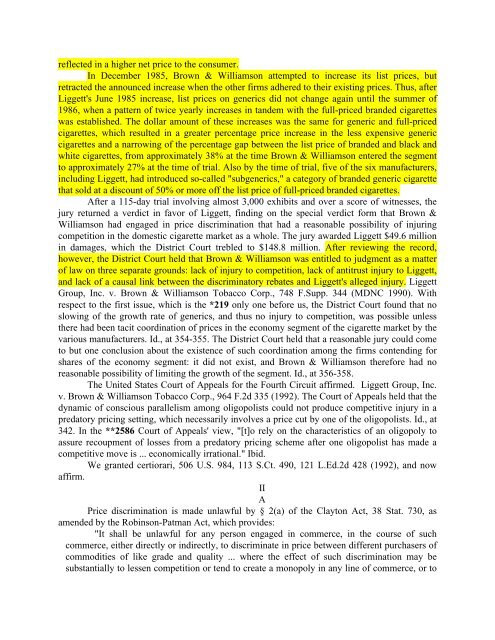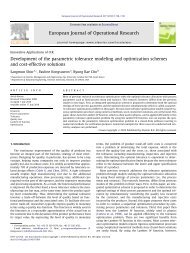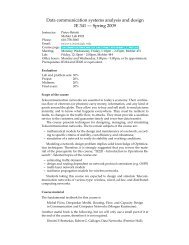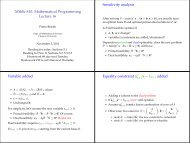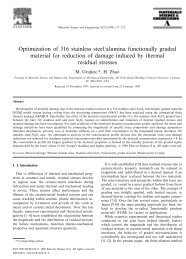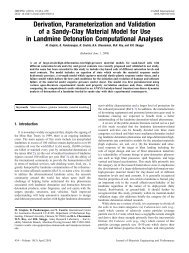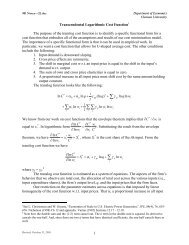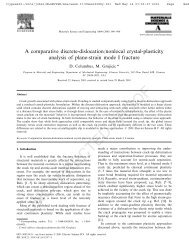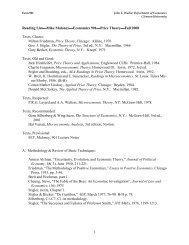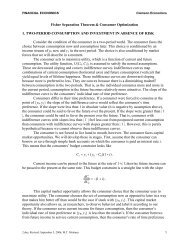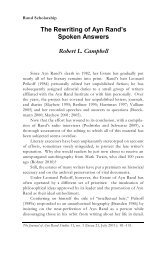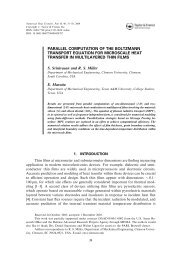509 U.S. 209, 113 S.Ct. 2578 BROOKE GROUP LTD., Petitioner v ...
509 U.S. 209, 113 S.Ct. 2578 BROOKE GROUP LTD., Petitioner v ...
509 U.S. 209, 113 S.Ct. 2578 BROOKE GROUP LTD., Petitioner v ...
You also want an ePaper? Increase the reach of your titles
YUMPU automatically turns print PDFs into web optimized ePapers that Google loves.
eflected in a higher net price to the consumer.<br />
In December 1985, Brown & Williamson attempted to increase its list prices, but<br />
retracted the announced increase when the other firms adhered to their existing prices. Thus, after<br />
Liggett's June 1985 increase, list prices on generics did not change again until the summer of<br />
1986, when a pattern of twice yearly increases in tandem with the full-priced branded cigarettes<br />
was established. The dollar amount of these increases was the same for generic and full-priced<br />
cigarettes, which resulted in a greater percentage price increase in the less expensive generic<br />
cigarettes and a narrowing of the percentage gap between the list price of branded and black and<br />
white cigarettes, from approximately 38% at the time Brown & Williamson entered the segment<br />
to approximately 27% at the time of trial. Also by the time of trial, five of the six manufacturers,<br />
including Liggett, had introduced so-called "subgenerics," a category of branded generic cigarette<br />
that sold at a discount of 50% or more off the list price of full-priced branded cigarettes.<br />
After a 115-day trial involving almost 3,000 exhibits and over a score of witnesses, the<br />
jury returned a verdict in favor of Liggett, finding on the special verdict form that Brown &<br />
Williamson had engaged in price discrimination that had a reasonable possibility of injuring<br />
competition in the domestic cigarette market as a whole. The jury awarded Liggett $49.6 million<br />
in damages, which the District Court trebled to $148.8 million. After reviewing the record,<br />
however, the District Court held that Brown & Williamson was entitled to judgment as a matter<br />
of law on three separate grounds: lack of injury to competition, lack of antitrust injury to Liggett,<br />
and lack of a causal link between the discriminatory rebates and Liggett's alleged injury. Liggett<br />
Group, Inc. v. Brown & Williamson Tobacco Corp., 748 F.Supp. 344 (MDNC 1990). With<br />
respect to the first issue, which is the *219 only one before us, the District Court found that no<br />
slowing of the growth rate of generics, and thus no injury to competition, was possible unless<br />
there had been tacit coordination of prices in the economy segment of the cigarette market by the<br />
various manufacturers. Id., at 354-355. The District Court held that a reasonable jury could come<br />
to but one conclusion about the existence of such coordination among the firms contending for<br />
shares of the economy segment: it did not exist, and Brown & Williamson therefore had no<br />
reasonable possibility of limiting the growth of the segment. Id., at 356-358.<br />
The United States Court of Appeals for the Fourth Circuit affirmed. Liggett Group, Inc.<br />
v. Brown & Williamson Tobacco Corp., 964 F.2d 335 (1992). The Court of Appeals held that the<br />
dynamic of conscious parallelism among oligopolists could not produce competitive injury in a<br />
predatory pricing setting, which necessarily involves a price cut by one of the oligopolists. Id., at<br />
342. In the **2586 Court of Appeals' view, "[t]o rely on the characteristics of an oligopoly to<br />
assure recoupment of losses from a predatory pricing scheme after one oligopolist has made a<br />
competitive move is ... economically irrational." Ibid.<br />
We granted certiorari, 506 U.S. 984, <strong>113</strong> S.<strong>Ct</strong>. 490, 121 L.Ed.2d 428 (1992), and now<br />
affirm.<br />
II<br />
A<br />
Price discrimination is made unlawful by § 2(a) of the Clayton Act, 38 Stat. 730, as<br />
amended by the Robinson-Patman Act, which provides:<br />
"It shall be unlawful for any person engaged in commerce, in the course of such<br />
commerce, either directly or indirectly, to discriminate in price between different purchasers of<br />
commodities of like grade and quality ... where the effect of such discrimination may be<br />
substantially to lessen competition or tend to create a monopoly in any line of commerce, or to


